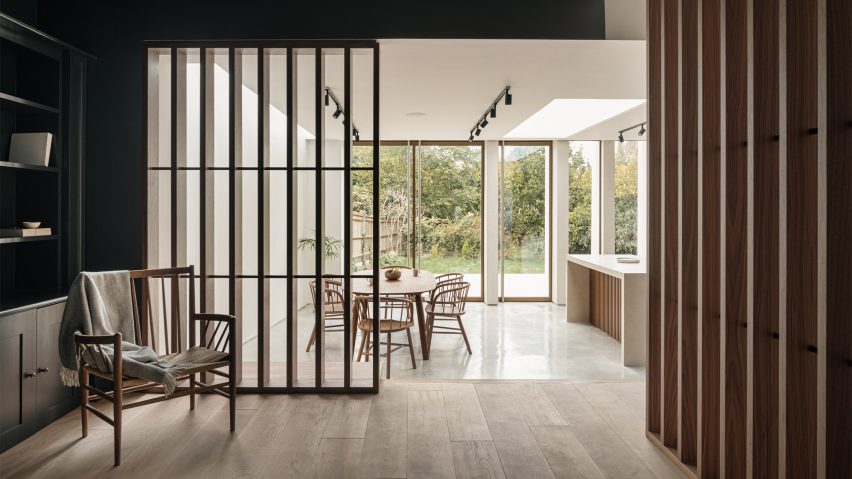
Deep-finned colonnade frames London home extension by Will Gamble Architects
British studio Will Gamble Architects has completed an extension and refurbishment to a family home in Croydon, London, defined by a contemporary colonnade spanning across the rear facade.
Designed for a growing family with a desire to improve their home's versatility, Will Gamble Architects sought to preserve elements of the existing architecture while delineating a new ground floor living space and revamped upper level primary bedroom.
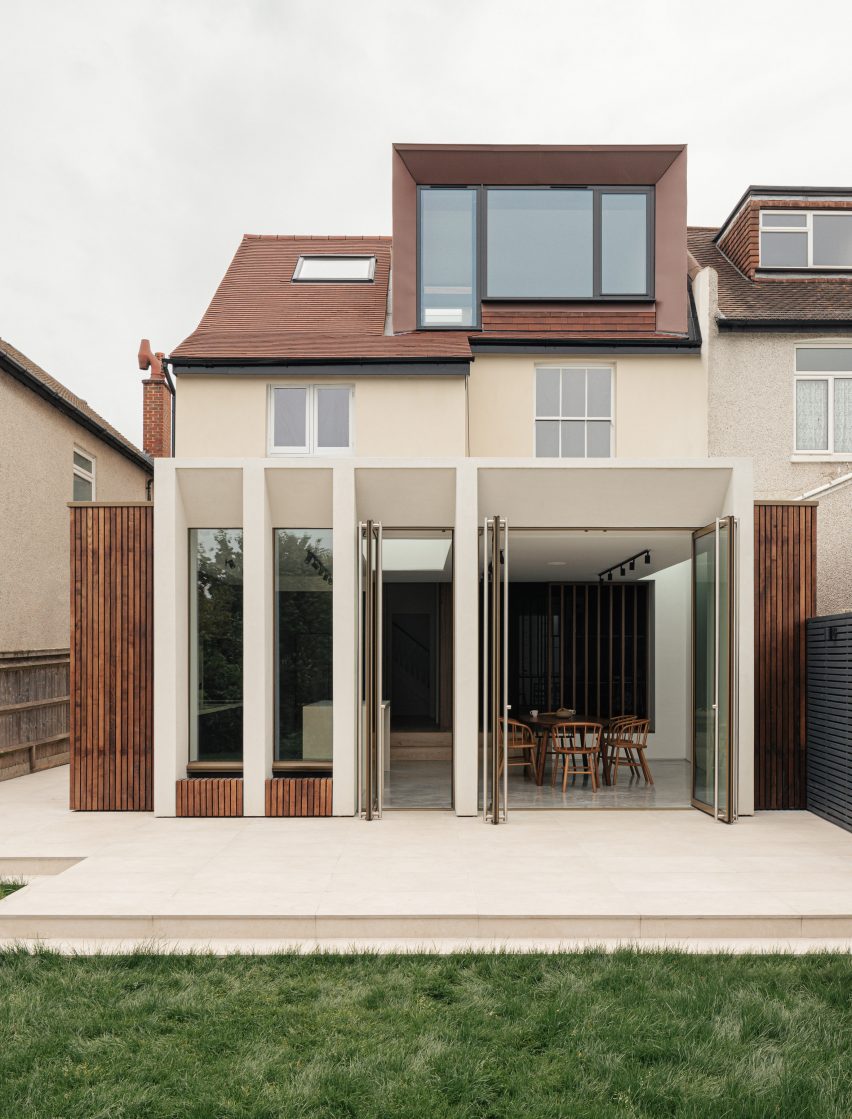
"The overarching concept was to reinvent the ground floor to provide a multifunctional living space capable of catering for extended family and guests, as well as providing more intimate spaces for the immediate family," Will Gamble Architects associate Miles Kelsey told Dezeen.
"The project retains key characteristics of the existing architecture, including a traditional reception room and ornate fireplaces and mouldings, whilst accommodating more contemporary spaces that allow it to cater for 21st-century living."
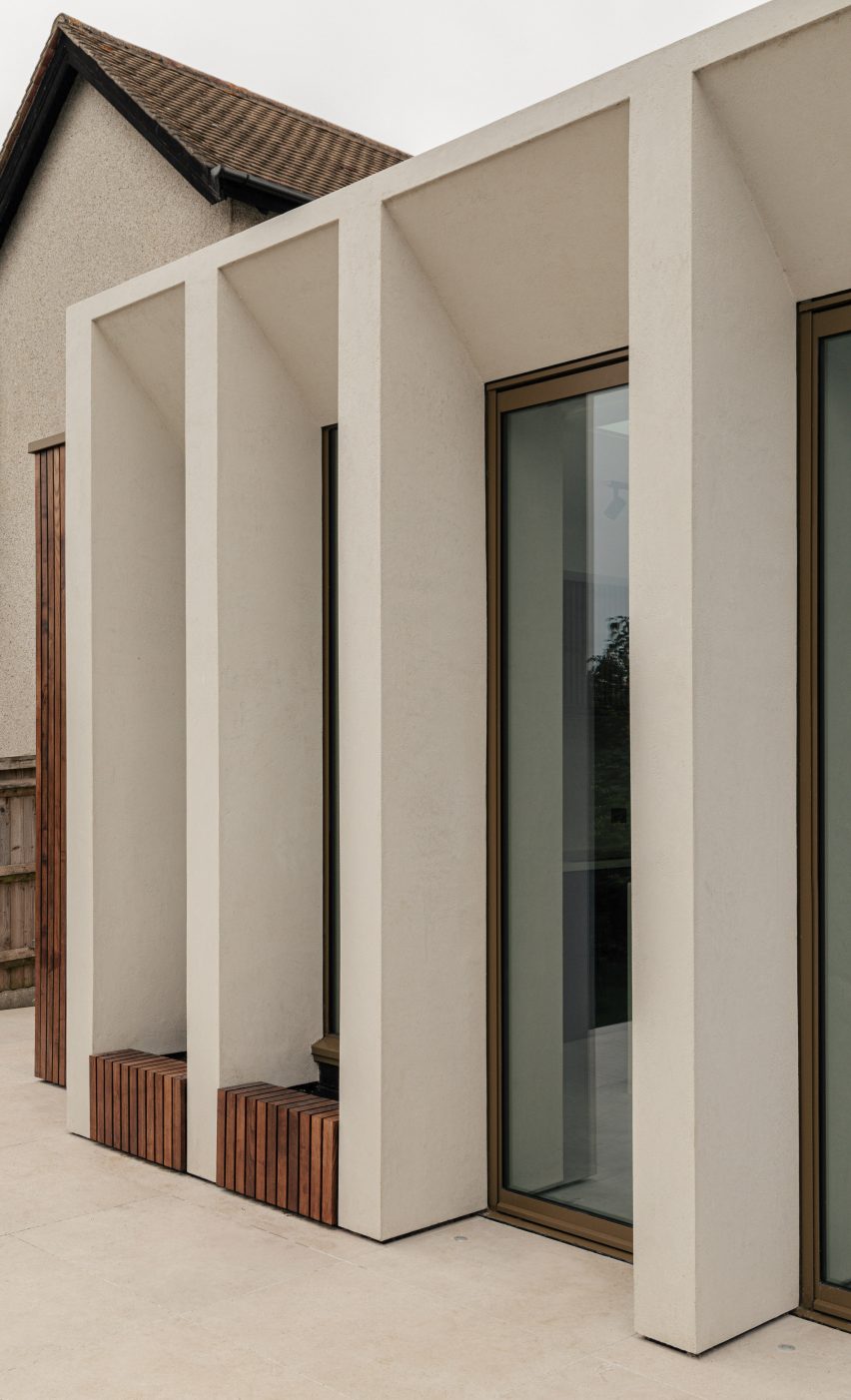
The external colonnade, flanked by deep brown ash slats, was conceived to frame a visual link to the rear garden and finished in a textured microcement to reference the rough cast render of the local vernacular.
Large pivot doors and floor-to-ceiling glazing fit between each column, providing direct access to the outdoors from the ground floor communal spaces.
"[The home] lacked a significant visual or physical connection to this natural outlook," Kelsey explained. "A contemporary interpretation of a colonnade, with deep vertical fins and an angled fascia, was used across the rear elevation to establish this missing connection."
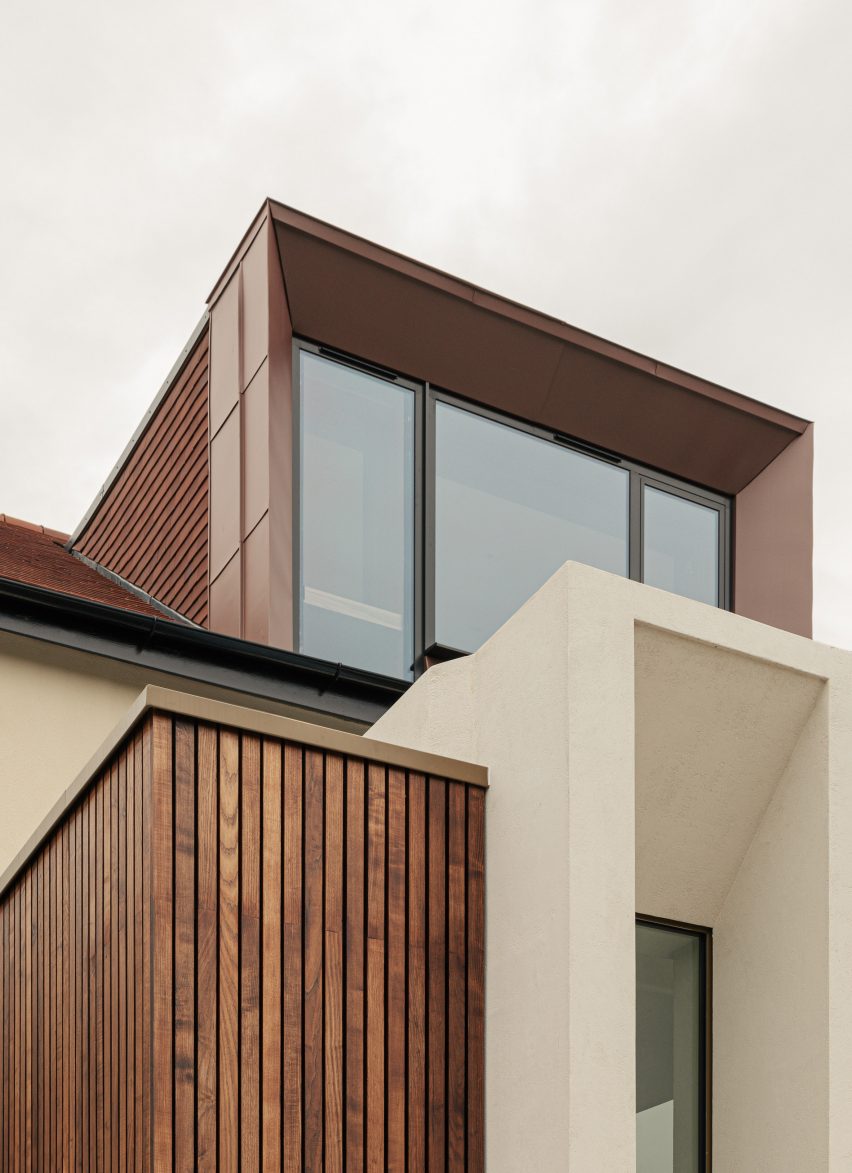
"The distance between these fins varies across the elevation's width and responds to the different uses internally to help create a subtle visual separation," Kelsey continued. "The wider opening defines the dining area whilst the smaller, narrower apertures enclose the kitchen space."
"The fins of the colonnade are linked by a steeply angled fascia which emphasises the height of the glazed openings, increasing the amount of natural light entering the building."
Following the client's brief, Will Gamble Architects aimed to break down the rigidity of the pre-existing spaces to create greater internal flexibility. The resulting open plan layout of the lower level extension was subtly divided by walnut fin screens, mirroring the verticality of the colonnade.
"The open-plan living arrangement at ground floor has been designed to accommodate large family gatherings, whilst including more private, 'snug-like' spaces," Kelsey said.
"This has been achieved through the use of floor-to-ceiling slatted partitions which help [to] zone the space, whilst maintaining a degree of transparency with the spaces adjacent. A level change compartmentalises the spaces even further."
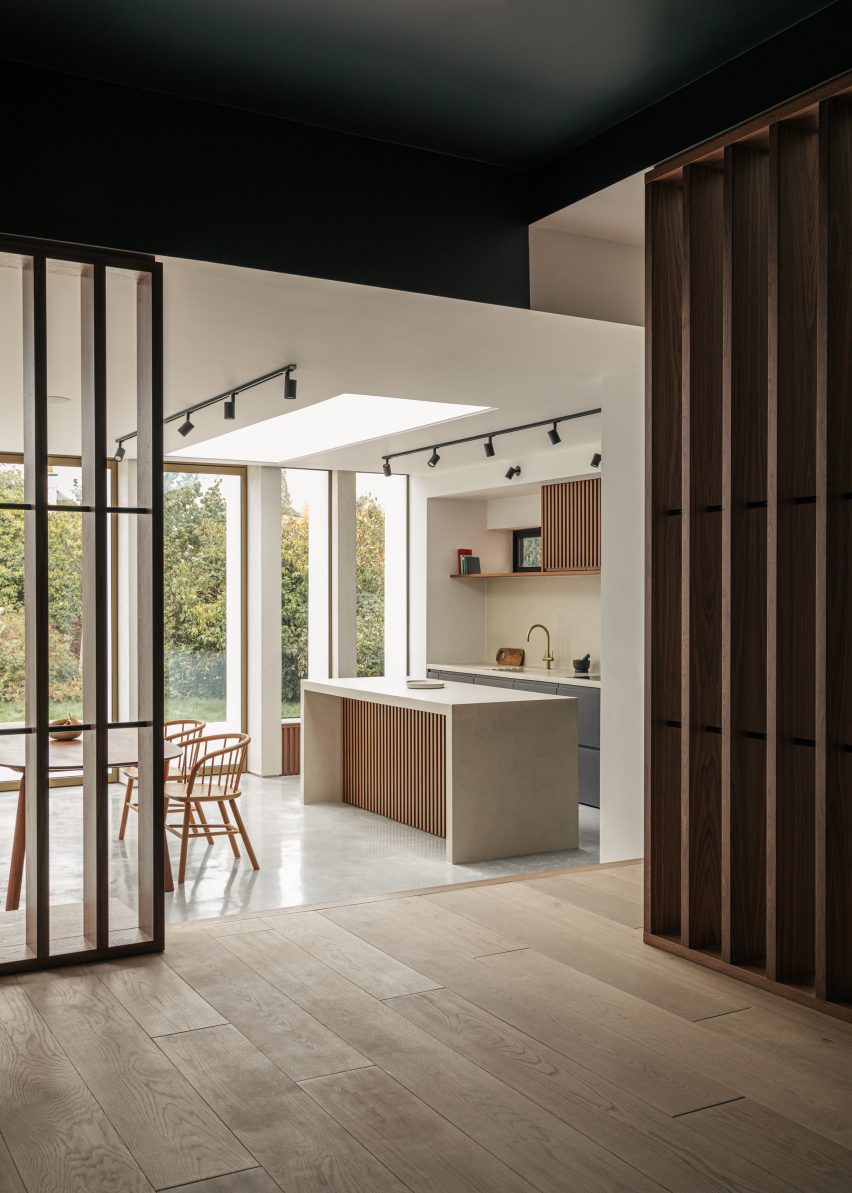
The studio continued the microcement language internally to the kitchen, alongside polished concrete floors and contrasted against black Valchromat and walnut cabinetry.
"The chosen materials have unique textural qualities and offer warmth and character," Kelsey explained.
"These materials are applied across various surfaces including walls, floors, bespoke furniture, worktops and slatted screens. The consistent material palette creates a cohesive language across the entire scheme."
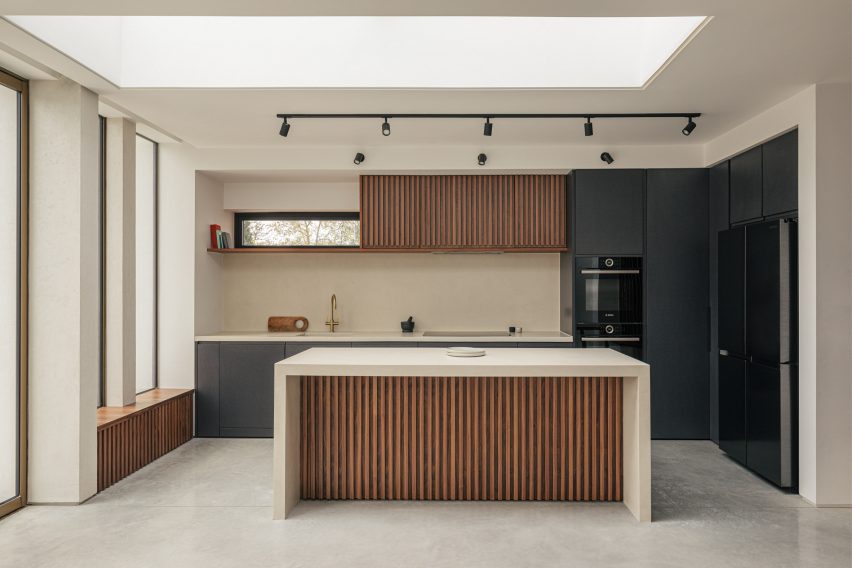
An inset angular dormer defines the renovated main bedroom at the second floor and was finished in red zinc to blend with the original red clay roof tiles.
The dormer's internal walnut reveals host a large window seat and desk with floor-to-ceiling glazing overlooking the site's context.
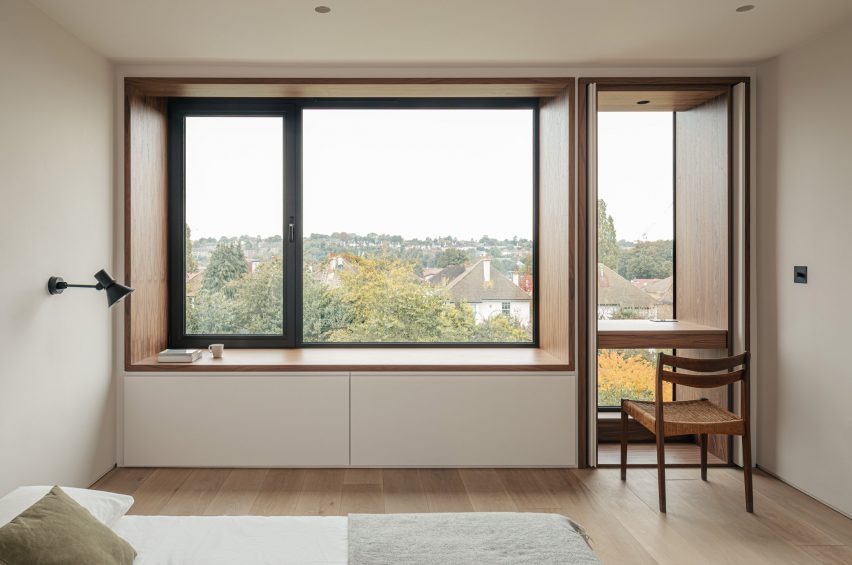
Will Gamble Architects was established in London by Will Gamble in 2018. The studio has previously completed an extension for a Grade II-listed house in north London informed by desert modernism and a renovation for a heritage-listed terrace house in south London.
The photography is by Chris Wharton